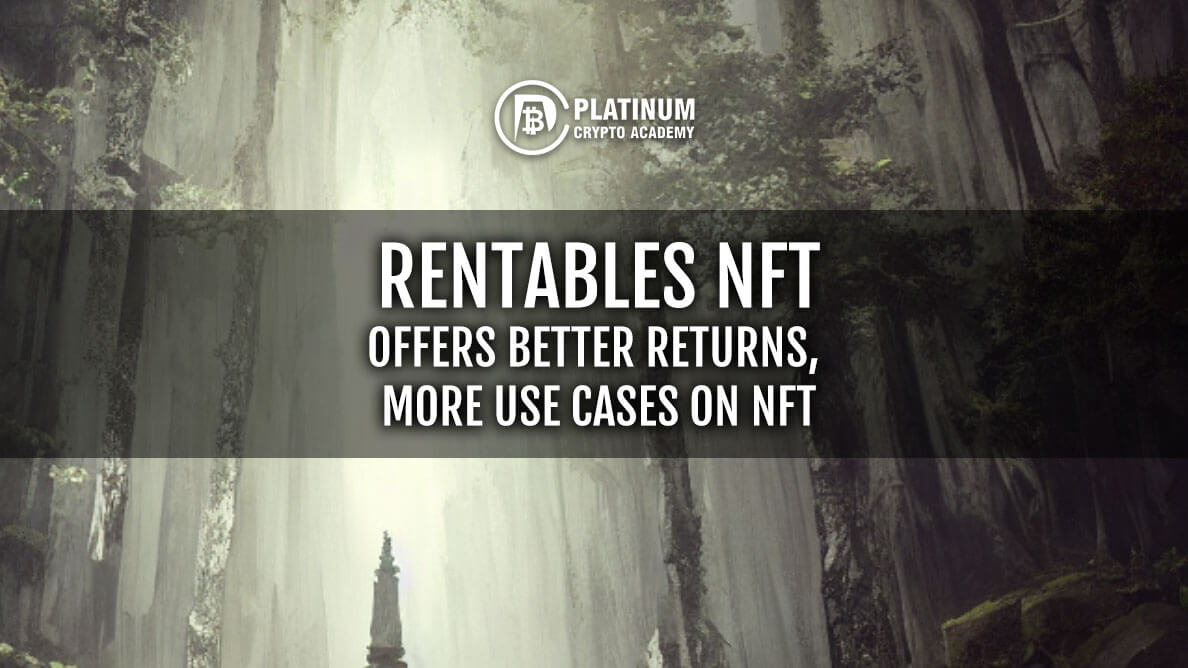Quick Links
Introduction
Rental or lease agreements are a key element in most commercial transactions involving properties, equipment or digital assets. A lease agreement is a legal document outlining the rental terms for either a commercial or residential property between the property owner, also known as the landlord or lessor, and the renter, also known as the tenant or the lessee. The same may be applicable in other industries as well.
Creating an effective lease agreement is very important as it protects all parties involved throughout the tenure of the lease. However, the conventional method of executing and storing those documents is not entirely tamper-proof and they are vulnerable to manipulation.
Smart contracts can provide an effective solution to the issues that are associated with the security and immutability of such agreements. Smart contracts refer to computer protocols that digitally facilitate the verification, control or execution of an agreement.
These protocols run on a blockchain network, which will process all the transactions in a contract, thereby bypassing the middlemen or intermediaries who are required otherwise to execute the transactions. Smart contracts are faster, cheaper and more secure ways of executing and managing agreements.
It is difficult for the system to be corrupted, as it would require enormous computing power to override the whole network and that is not possible for everyone to accomplish. As with traditional contracts, smart contracts define rules and penalties around an agreement and automatically enforce those obligations. While they can work independently, many smart contracts can also be implemented together.
The integral components of a smart contract are termed as objects. There are essentially three objects in a smart contract – the signatories or the parties involved in the smart contracts that use digital signatures to approve or disapprove the contractual terms, the subject of the agreement or contract and the specific terms of the agreement.
Rentable Smart Contracts
Rentables, as the name suggests, is basically a rentable NFT smart contract where other projects can integrate these NFT into their own projects and where the NFT holders don’t need to sell the NFT. They can rent it out on a time frame basis and earn rental income from their NFT. .
The rent price has been initially kept at 30 percent of the last sale value for a 30 days period. However, this model is still under development. The Rentables NFT collection has been generated using AI Stable Diffusion and is based on a random seed.
There are 10,000 NFT in the Rentables NFT collection. All the NFT are unique and the chance or probability of generating the same image is after 2 billion images have been generated using the exact same text prompts.
Rentable smart contracts, as with other smart contracts, are typically built on blockchain networks. This ensures transparency, immutability and decentralization. It also essentially means that the terms and conditions of the rental agreement are stored in a tamper-proof ledger, and all parties have access to the same data or information.
Rentable smart contracts are now being offered on several platforms and protocols, including Ethereum, OpenLaw and Agreements Network, to name a few. These platforms enable users to create, customize and execute smart contracts for various types of rentals, such as short-term rentals, long-term leases and equipment rentals, among others.
Benefits of Rentable Smart Contracts
There are many potential benefits to a user who buys an NFT that is built on a rentable smart contract.
Access to rental assets – The ownership of the NFT gives users the access to rental assets that are represented on the blockchain. For instance, a NFT representing a real estate property could grant the holder the right to occupy the property for a specified period, as defined in the rentable smart contract.
Increased Liquidity – Rentable smart contracts enable the creation of secondary markets for the NFT, thereby making the assets represented by them become more liquid. In other words, the user can liquidate his or her investment by simply selling the token or NFT to another party.
Transparency and Security – The use of blockchain technology and smart contracts can provide greater transparency and security to rental agreements. Besides, it eliminates the need for intermediaries, as all the terms and conditions of the rental agreement are stored on the blockchain and are executed automatically. This also reduces the chance of disputes.
Programmability – Rentable smart contracts are programmable, which means that the terms and conditions of the rental agreement can be customized to meet the specific needs of the parties involved. Not only does this offer greater flexibility for the end user, it can also potentially lead to more efficient and cost-effective rental agreements.
Rentable smart contracts over regular NFT
Apart from the native benefits of smart contracts that come automatically to even rentable smart contracts, there are other benefits which may influence users to buy an NFT built on a rentable smart contract instead of a regular NFT.
Unique Value Proposition – The NFT built on a rentable smart contract may offer a unique value proposition, such as access to a rare and exclusive rental asset, or a revenue-sharing mechanism that is not available with regular NFT.
Potential for market demand – The NFT built on a rentable smart contract may be part of a growing trend or of an emerging market, such as the market for fractional ownership of real estate or a piece of art. This opens up the possibility for increased demand as well as appreciation in future for the tokens.
Diversification – An NFT built on smart contract may provide diversification in an investor’s portfolio, as it represents a different asset class or investment opportunity than regular NFT.
Ethical or social impact – The NFT built on a smart contract may be tied to an ethical or social cause, such as supporting sustainable energy or providing access to affordable housing. This may be appealing to investors who give greater priority to social or environmental impact in their investment decisions.
Personal Interest – Someone may even buy an NFT built on a rentable smart contract because of their interest in the underlying rental asset, the revenue-sharing mechanism or the technology and innovation behind the smart contract.
Intrinsic Value – The NFT built on a rentable smart contract may have intrinsic value much beyond its potential revenue streams or access to rental assets. These could also be an historical event or even those with cultural or artistic significance.
Long-term Value – As the NFTs built on smart contracts have the potential for appreciation over time, it can be seen as a long-term investment opportunity. Factors such as scarcity, growing market demand or the underlying value of the rental asset may work in favor.
Risk Management – NFT built on smart contracts provide exposure to a different asset class or investment opportunity than traditional investment avenues, thereby offering a method of risk management.
Trust and Reputation – The rentable smart contract may be built by a reputable and trustworthy organization or individual, thereby providing an added layer of trust and confidence for investors. This is significant especially in markets with inadequate regulations or absence of established standards.
Network Effects – The NFT built on rentable smart contracts may benefit from network effects, such as growing adoption and usage of the underlying rental asset. This may potentially create a self-reinforcing cycle of value creation.
Transparency – Usage of blockchain technology and smart contracts in Rentables NFT can provide increased transparency and immutability of transactions, which can be appealing to investors who value transparency in financial dealings.
Versatility – Rentable NFT can be used to represent a wide range of assets, such as real estate, intellectual property or even sports memorabilia. This versatility can create a diverse set of investment opportunities for investors.
Income Generation – The revenue-sharing mechanism of Rentables NFT can provide investors with an additional source of income, which can be appealing to those seeking a passive source of income.
Speculation – Some investors may look at Rentables NFT as speculative investments, with potential for high returns in a short period of time. However, it is important to note here that such investments also come with high risks.
Community Engagement – Rentable NFT can potentially create a community among investors and they can collaborate on the development and management of the rental asset. This can foster a sense of ownership and shared responsibility among investors.
Innovation and Exploration – Some investors may view investments in Rentable NFT as a way to explore the blockchain and smart contract technologies, or to support innovation in emerging markets.
Use cases of Rentable NFT
With so many benefits available with rentables smart contracts, there are already quite a few real-life use cases of rentable smart contracts.NFT that could be relevant in the current market.
Rental Properties – NFT can be used to represent rental properties, with the rentable smart contracts managing the rental agreements, payment schedules and revenue sharing between property owners and NFT investors. This could be very useful in market scenarios where there is high rental demand for properties but property ownership may be out of reach of some investors.
The same model can also be applied to storage facilities, where the rentable smart contracts can manage the rental agreements, payment schedules, and revenue sharing between the owners of the storage facilities and the NFT investors.
Intellectual Property – NFT can be used to represent intellectual property, such as music or artwork, while the rentable smart contracts can manage the licensing agreements and revenue sharing between IP owners and NFT investors.
As digital consumption is one the rise, this could be an effective way for creators who are seeking new ways to monetise their work. Smart contracts ensure that royalties go to the intended recipients by recording ownership rights in a decentralized blockchain system.
Transportation Assets – NFT can be used to manage transportation assets, such as shipping containers or vehicles, with the rentable smart contracts managing the rental agreements, payment schedules and revenue sharing between asset owners and the NFT investors. Such arrangements can be effective in scenarios where supply chain disruptions are creating challenges for the transportation industry.
Vacation Rentals – NFT can be used to represent vacation rentals and the rentable smart contracts can manage the rental agreements, payment schedules and revenue sharing between vacation rental owners and the NFT investors. This could be relevant in the current market scenario, where the travel industry is witnessing a recovery from the depths of the pandemic and the demand for alternative accommodation is increasing.

Potential use cases
Apart from the existing use cases of rentable smart contracts elucidated above, there could be more potential use cases for NFT built on smart contracts.
Decentralized Finance (DeFi) transactions – The token can be used in DeFi transactions on the Polygon network, such as liquidity provisions, yield farming or trading.
Staking and Governance – The token can be used for staking and participating in governance activities on platforms that accept this token.
Payment Method – The token can be used as a payment method for goods and services, including e-commerce transactions and digital advertising on platforms that accept this token, thereby providing a fast and secure payment option.
Loyalty Program – The token can be used as part of a loyalty program for a platform or for a specific brand, providing rewards and incentives for users who hold and use this token.
Tokenized Assets – The token can be used to represent and trade tokenized assets, such as real estate, artwork or intellectual property on the Polygon network.
Gaming – The token can be used in gaming applications on the Polygon network, providing a secure and fast payment option for in-game items and virtual objects.
Crowdfunding – The token can be used in crowdfunding campaigns on the Polygon network, thereby providing a way for project creators to raise funds and incentivize early adopters.
Social Networks – The token can be used as a reward mechanism for content creators and community members on social media platforms built on the Polygon network. This would incentivize user engagement and loyalty.
Insurance – The token can be used to represent and trade insurance policies on the Polygon network, thereby providing a more efficient and transparent way to transfer risk. Currently, the lack of automated administration often leads to delays in processing of claims. Smart contracts can simplify the process by automatically triggering a claim when certain events occur.
Supply Chain Management – The token can be used to represent and track goods as they move through the supply chain. This would provide greater visibility and efficiency for all parties involved. Smart contracts can record ownership rights as items move through the supply chain, confirming who is responsible for the product at any given time.
Identity Management – The token can be used to represent and verify user identities on the Polygon network and this can provide a more secure and decentralized way to manage personal data and information.
Carbon Credits – The token can be used to represent and trade carbon credits on the Polygon network. This would provide a more efficient and transparent way to offset carbon emissions.
Real Estate – Rentable smart contracts are already in use in the real estate sector to facilitate rental agreements. The token can also be used to represent and trade fractional ownership of real estate properties on the Polygon network. This would provide greater liquidity and accessibility for real estate investors.
Music and Media Rights – The token can be used to represent and trade music and media rights on the Polygon network. This would provide a more efficient and transparent way for artists and creators to monetize their work.
Education – The token can be used as a reward mechanism for students and educators on educational platforms that are built on the Polygon network. This can incentivize academic achievement and engagement.
Charity – The token can be used as a donation mechanism for charitable organizations on the Polygon network and it can provide a more transparent and efficient way for donors to support their favorite causes.
Smart Cities – The token can be used to represent and trade municipal assets and services in smart city applications on the Polygon network, thereby providing a more efficient and transparent way to manage urban infrastructure.
Conclusion
One of the major advantages of smart contract implementation is the elimination of intermediaries. This ensures greater transparency and security to the whole process. Data safety is ensured in the decentralized registry and cannot be lost or fall victim to any cyber attack.
It automatically generates a record of all transactions that is highly resistant to forgery.
With rentable smart contracts, the benefits and advantages only multiply as the scope of applications of this technology is enormous. In addition, Rentables NFT also provides an additional income stream by sharing the revenue with the investors.
The benefits do not end with the financial returns. Although the Rentables NFT collection is primarily a non-utility based one, it can be extended to be used as utility-based too, if any other contract wants to be integrated inside it. Hence, a compelling reason to explore Rentables NFT collection.
Hopefully, you have enjoyed today’s article. Thanks for reading! Have a fantastic day! Live from the Platinum Crypto Trading Floor.
Earnings Disclaimer: The information you’ll find in this article is for educational purpose only. We make no promise or guarantee of income or earnings. You have to do some work, use your best judgement and perform due diligence before using the information in this article. Your success is still up to you. Nothing in this article is intended to be professional, legal, financial and/or accounting advice. Always seek competent advice from professionals in these matters. If you break the city or other local laws, we will not be held liable for any damages you incur.


